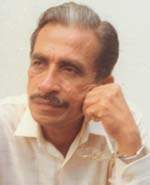| TV
Times
|
||||||
|
Seelawimala
: Penning songs for passion Unlike today, sensitive lyrics of those songs certainly attracted huge crowds to the cinema halls. For Sinhala film fans, the name Cyril A. Seelawimala has been not just the soul but also the brain behind some of the most ear-soothing lyrics during the past four decades. Mr.Seelawimala, the veteran journalist excelled in all forms of writing in films – story, dialogue, screenplay and lyrics and his sensitive pen has straddled generations of mind-sets. The soft-spoken wordsmith has penned about 500 songs for a long list of films and singers of every stripe ranging from Vasantha Sandanayake, Victor Ratnayake, Angeline Gunatileke, Mohideen Baig, Maurice Dahanayake, Christopher Paul to H. R. Jothipala and Freddie Silva. The man who always opted to stay away from the limelight also reached the masses as the one-time editor of the ‘Dawasa’ and ‘Riviresa’ newspapers. “I was fond of music from my early childhood and was also hooked to Sinhala songs. I feel that trait pushed me to higher levels at later stages,” Mr. Seelawimala says outlining his outstanding writing career. Born in Sandalankawa, his father was a native doctor who wanted his son to someday follow his footsteps. But destiny
and his love for writing dashed all hopes of his father. The biggest surprise came to him when his 13th poem was published for the first time, thus prompting him to believe even today that 13 is not an unlucky number. He says listening to Vasantha Sandanayake’s ‘Kalyani Ganga Rajini’ inspired his ardent passion for songs and was determined to someday become a lyricist. His career as a film lyricist began with the screening of Kingsley Rajapakse’s ‘Deepashika’ on December 12, 1963. He penned two songs for Lata Walpola in the film and later went on to become one of Sri Lanka’s most sought after lyricists. In the long
journey his soulful lyrics became part of the sound tracks in films
like Sweep Ticket, Sikuruliya, Pickpocket, Ada Mehemai, Den Mathakada,
Suhada Pethuma, Sudu Duwa, Kesara Sinhayo and a host of others.
The modest word processor was behind many evergreen hits like Jothi-Anji’s Dothin Dothai, Honda Siriyawai Akase, Jothi’s Lassanai Balanna, Vishnu Devinde, Victor’s Mohen Mulawela, Linden Wathura Beela, Janma Bhoomi, Sisira Senaratne’s Natapan Naihami, Freddie’s Mamai Mottapala, Galkisse Muhudu Werale, Maurice Dahanayake’s Sudo Poddak Andanna Harima Asai Balanna, Meth Mal Pibidewa, Haroon Lantra’s Ananda Me Re Hari Hedaine, Milton Perera’s Sansun Ruwan Hada Mandiraye which could be hummed and cherished even today. He laughs at the memory of recording the hit song in Suhada Pethuma – ‘Dothin Dothai Jeewen Jeewei’. “ It was a terrific experience. I wrote the latter part of the song while the song was being recorded and it finally became an instant hit.” As a journalist he first joined Peramuna as a sub-editor and after it was closed down he did some radio programmes at SLBC. It was during this period that he made his debut at the Dawasa group as a Free Lance journalist and in later years rose to the top as the Editor of Dawasa after the resignation of eminent legal figure S. L. Gunasekara and headed the Riviresa editorial until it was woundup. Seelawimala’s association with media stalwart D. B. Dhanapala and his chapter at the Dawasa group is so immense that it cannot be condensed even into one broadsheet page. His illustrious career there not only made him a prominent and respected media man, but it has also taught other journalists that nothing is impossible if hard work, commitment and dedication are injected into your work. You are 73 today, though you don’t look so. How do you feel when your write targeting the younger crowd? “Even if one is 100, the child, the teenager, the adult should be alive in him. You pass through
different stages in life and every stage and its aesthetics and
dreams must be preserved in your memory so that you can recapture
them together with their feelings at any given time. That’s
what I do,” he explains. “Those days, family sentiments and human values held sway and provided fodder for the lyricists, but today the situation is sad and depressing. I mean the general attitude. There may be many reasons. Our educational system has not left much room for literature, poetry and aesthetic. In the process, language has been marginalized. A language is not just a source of communication, but much more than that. It is culture and culture lives in language. Today most songs are centered on love based on the man-woman equation. Is this the only love we know of? Why not focus on the love for your parents, brothers and sisters, your country? “, he asks. On the family
front, are any of your children following your footsteps? She seems to be astonishingly bright and intelligent and my only hope is that she would some day follow my footsteps,” an apparently excited and relieved Seelawimala says with hopes written all over his face. Perhaps the veteran wordsmith would be soon seeing a replay of his memorable childhood through his grandchild Nethmi and what would be the best word to describe such a situation. No wonder, Mr. Seelawimala’s word factory would produce the appropriate word to describe it. |
||||||
Copyright © 2001 Wijeya Newspapers
Ltd. All rights reserved. |
 For
decades, music has indeed been a vital ingredient for the commercial
success of any film. Most of yesteryear Sinhala films were made
super hits by the audience mainly on the strengths of their music.
For
decades, music has indeed been a vital ingredient for the commercial
success of any film. Most of yesteryear Sinhala films were made
super hits by the audience mainly on the strengths of their music.